It's my job to test bedding, and these are the 6 best linen bedding sets I recommend on repeat
They're effortlessly stylish and perfect for hot sleepers

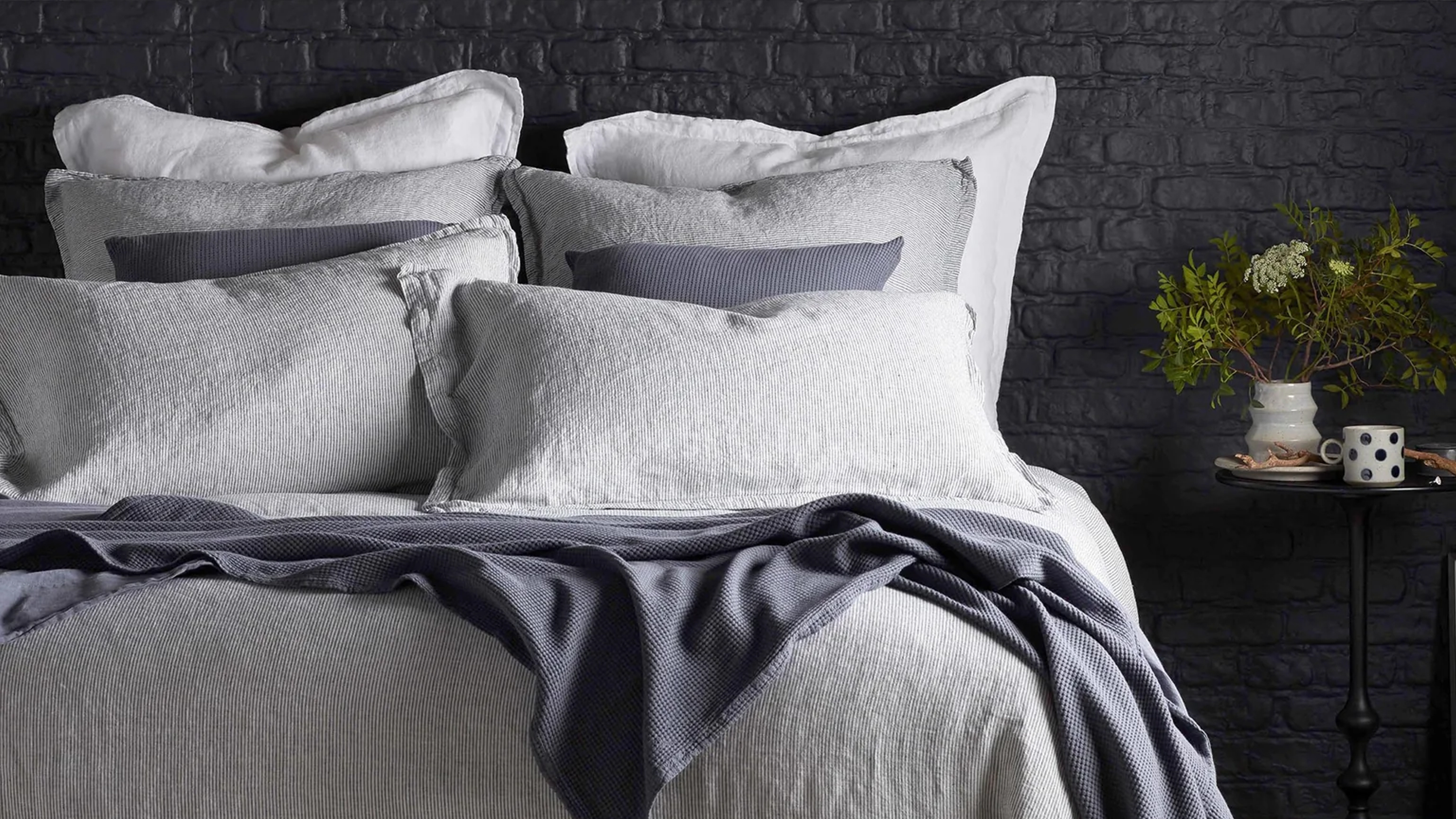
Sign up to our newsletter for style inspiration, real homes, project and garden advice and shopping know-how
You are now subscribed
Your newsletter sign-up was successful
The best linen bedding offers low-maintenance luxury, plus fantastic breathability and temperature regulation.
As Ideal Home's Sleep Editor, over the past four years, I've tested a *lot* of bedding. As a hot sleeper, I've found that opting for pure linen bedding is one of the best ways for me to sleep cooler on hot nights.
That's because linen's natural fibres and looser weave offer far better airflow than most other fabrics. Pair a linen duvet cover with one of the best duvets for hot sleepers, and you'll instantly have a less sweaty sleep. The bonus is that linen bedding can also keep you cosy on cold nights.
Plus, this natural fibre doesn't need ironing to look stylish, and whether you choose plain neutrals or a mix-and-match gingham or striped set, it's a timeless look that will instantly elevate your bed.
Best linen bedding
However, the best linen bedding is expensive, and lower-quality linen can feel rough and itchy. That's why I've tested multiple linen bedding sets to find the best-in-class. If you're wondering where to buy bedding and have your heart set on linen, this is where I recommend you shop.
Best linen bedding
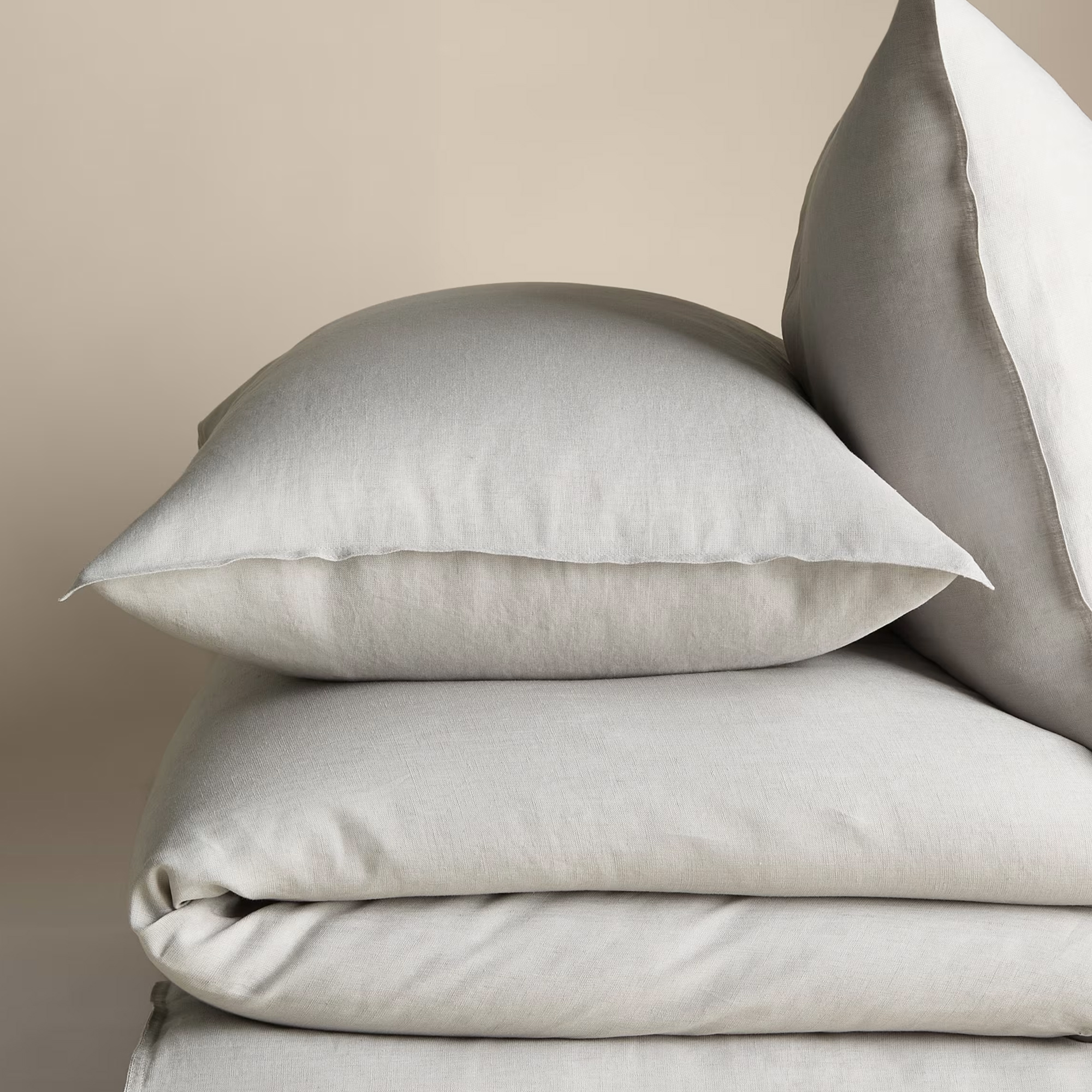
Double duvet: £95 including two pillowcases
Pillowcase: included in the set
Colour options: 13
This M&S Pure Linen Bedding Set is the most affordable linen bedding I've come across, so no wonder it's amassed nearly 500 5-star reviews on the M&S website. For a £95 investment, you get a double duvet cover and two pillowcases. That's nearly half the price of the same items from some of the best-known linen bedding brands. Yes, the linen is thinner than its more expensive rivals, but if you're shopping for the summer months, that can be a bonus as it means more breathability.
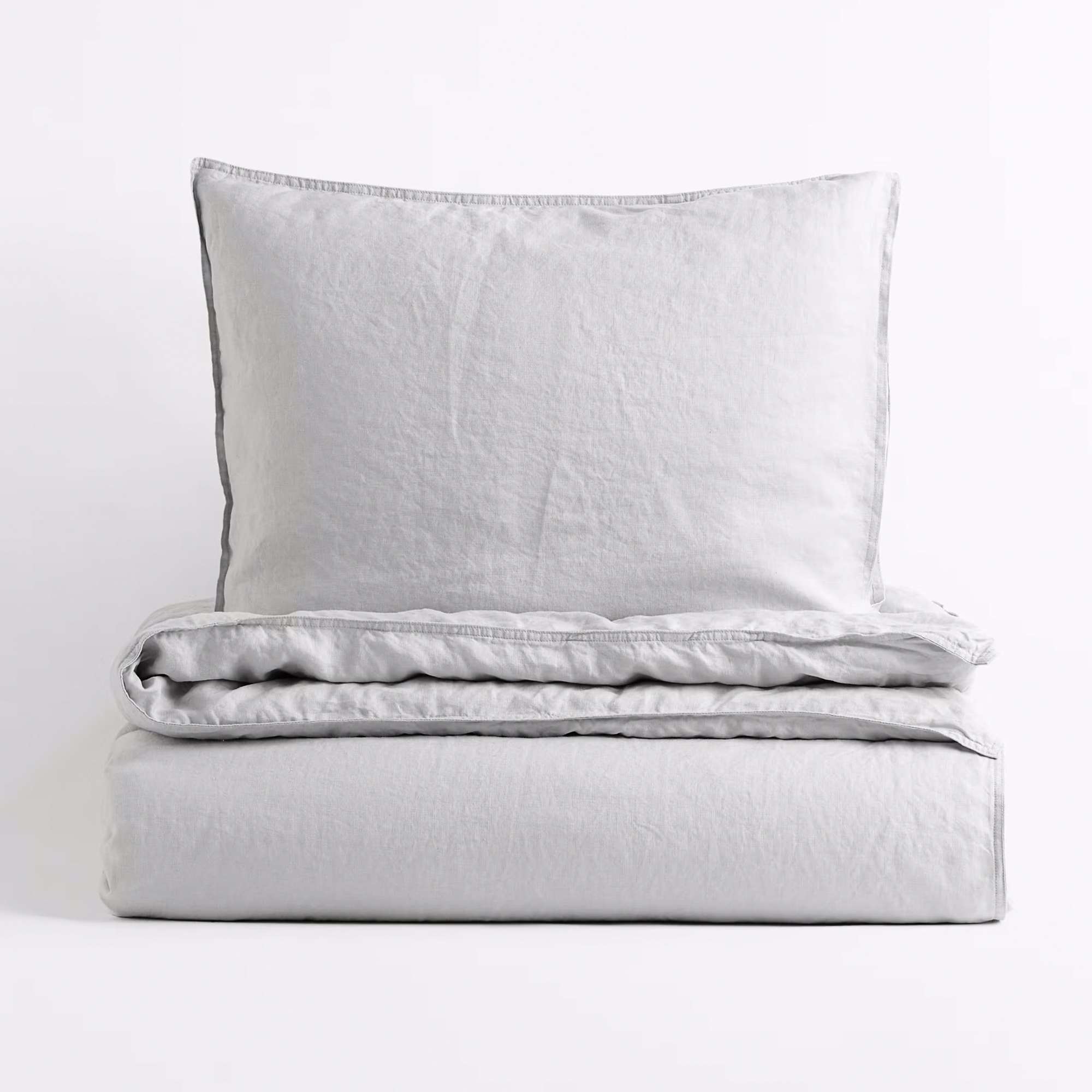
Double duvet: £119.99 including two pillowcases
Pillowcase: included in the set
Colour options: 4
After M&S, H&M offers some of the best value linen bedding I've come across. This 100% linen bedding set includes a double duvet cover and two pillowcases. The downside is that colour options are a little limited, but, being H&M, the shades that are on offer each season are always bang on trend. Size options are also a little limited, with only single, double, and king sizes available – and they're often sold out. However, snap a set up whilst they're in stock and you get a great value bundle.
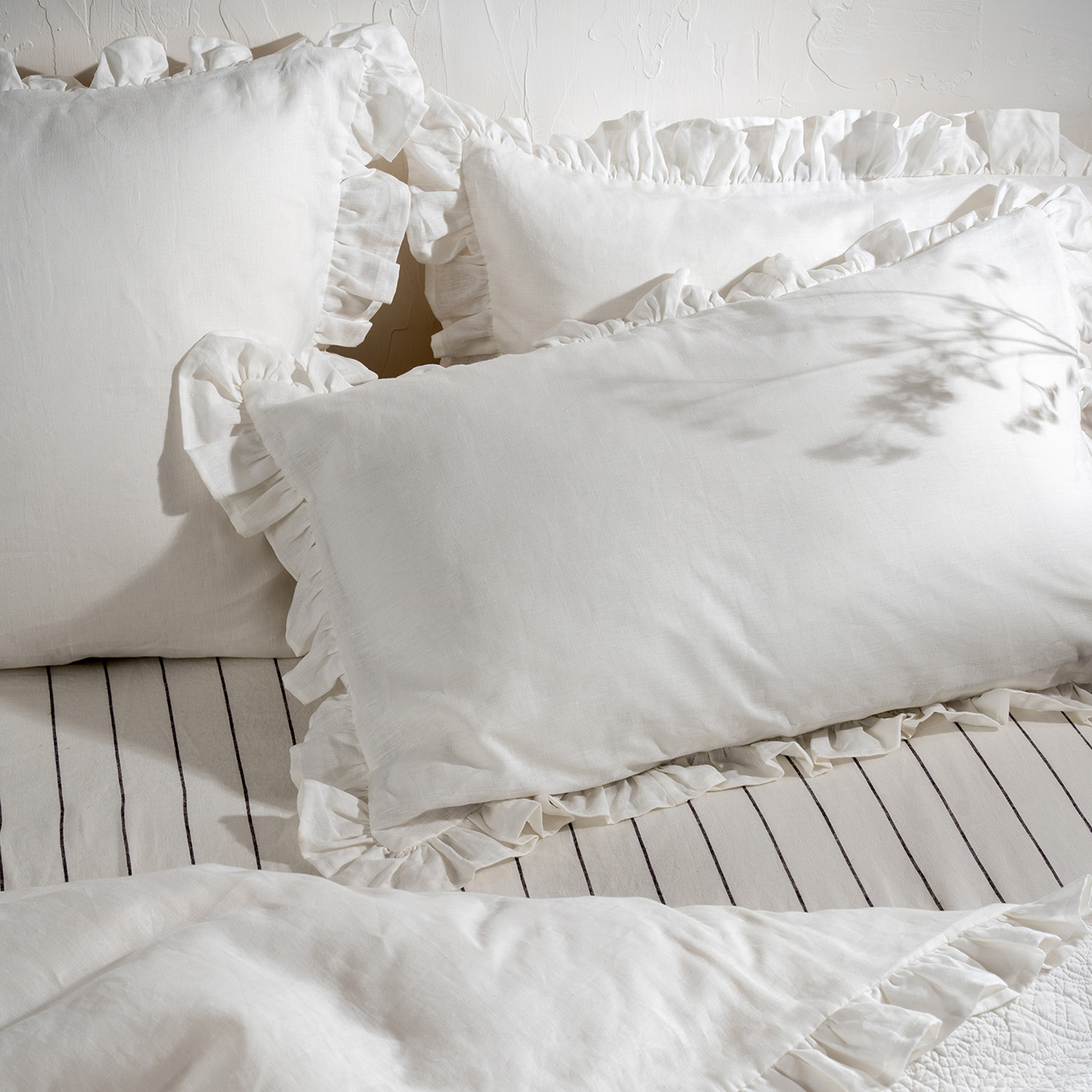
Double duvet: £95
Pillowcase: £30 for two
Colour options: 17
I've always found Soak & Sleep's bedding to be great quality, and this French linen bedding is no exception. It's lightweight, soft, and gets better with each wash. It's also good value. A double duvet cover is £95, but pillowcases do cost an extra £30 for a pair. Or you can opt for a bedding bundle which includes the duvet cover, fitted sheet, and two pillowcases for £191. Soak & Sleep discount codes can also help to reduce that price further.
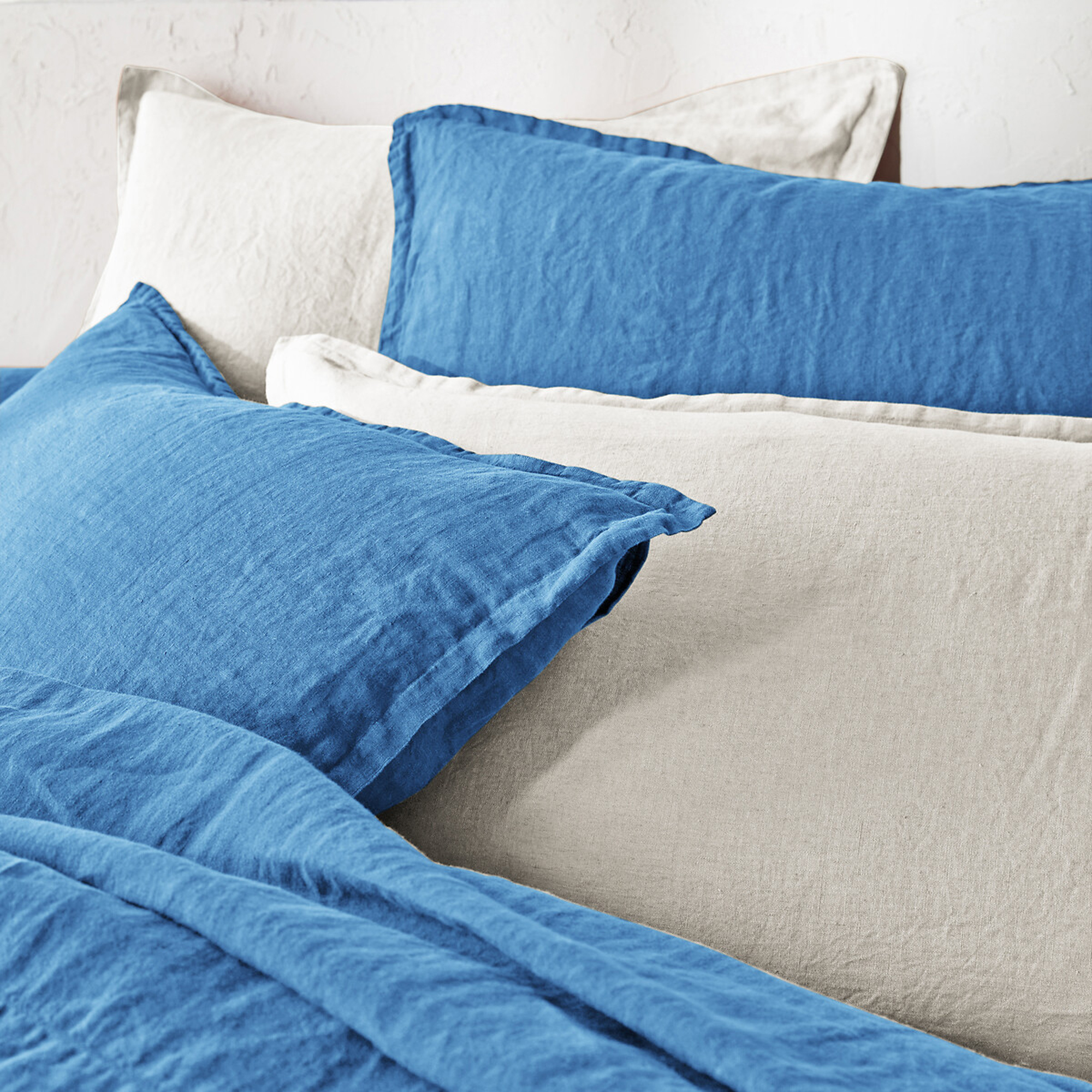
Double duvet: £129.99
Pillowcase: £29.99 each
Colour options: 22
La Redoute's Linot linen bedding collection is more expensive upfront, in particular because the pillowcases are sold separately, and at £29.99 *each*, they're not cheap and increase the overall cost of buying a set. However, if you can shop during one of La Redoute's fairly frequent sales, I've seen this bedding reduced by up to 40% which makes it a much better buy. This collection is also available in 22 great colourways – including the fantastic Provence Blue, which I'm currently lusting after.
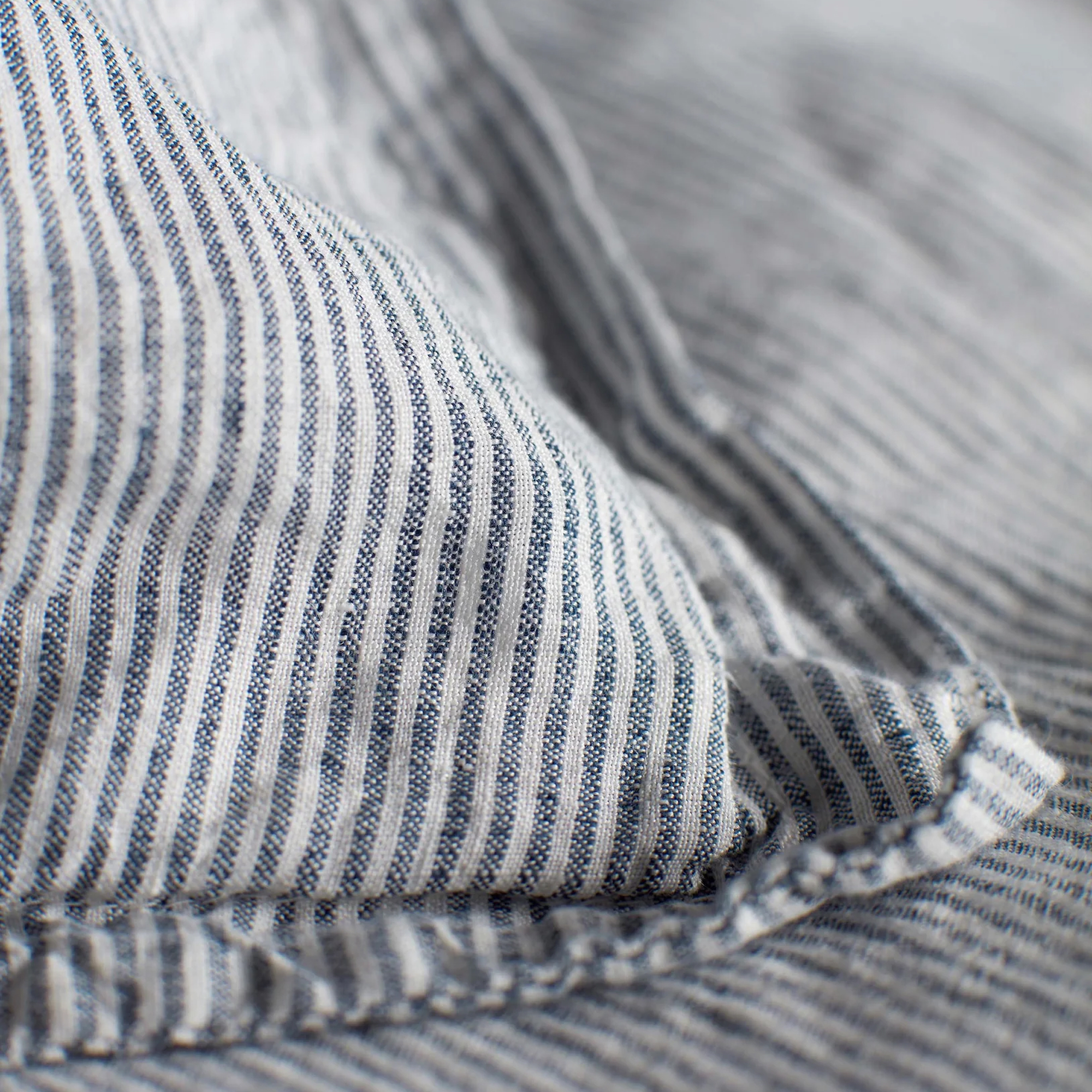
Double duvet: £175
Pillowcase: £26 each
Colour options: 30
I've long been a fan of Secret Linen Store's bedding, and as the brand's name might suggest, it's something of an insider's secret when it comes to 100% linen bed linens. There are 30 colourways on offer, and I tend to find that if Piglet in Bed (more on this brand next) doesn't have the exact shade of bedding I'm looking for, then the Secret Linen Store will. Yes, it's more expensive than high street options, but the brand's linen is all made in Portugal and OEKO-TEX® Standard 100 Certified, meaning it contains no chemical nasties.
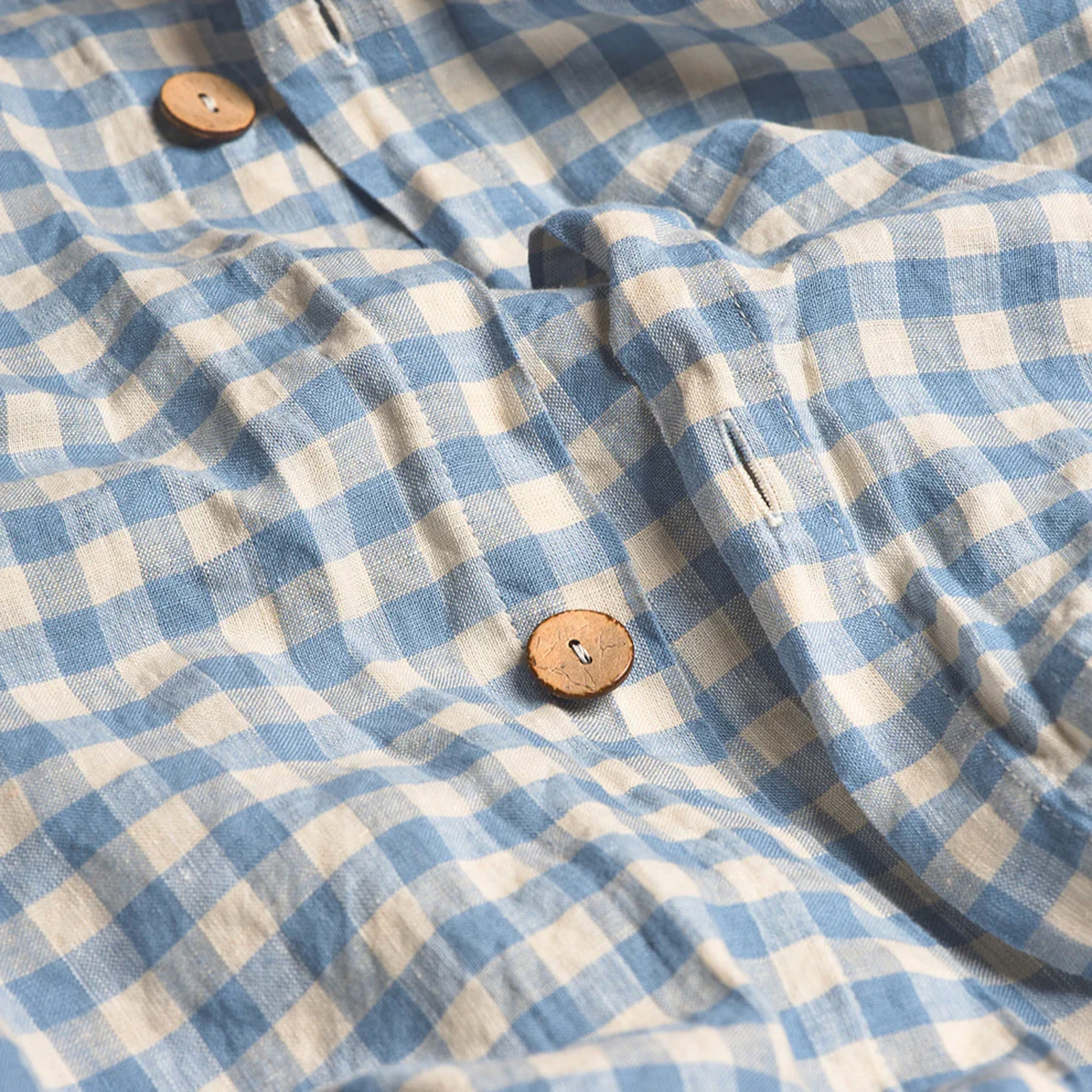
Double duvet: £199
Pillowcase: £39 for two
Colour options: 39
Piglet in Bed has played no small part in getting Instagram obsessed with the artfully crumpled appeal of linen bedding. From the brand's now iconic gingham collection to its impressive range of stripes and colourways, its mix-and-match bedding sets are almost unparalleled when it comes to aesthetics. However, it's also one of the most expensive brands to shop. That said, if your heart is set on colour and pattern, the brand's OEKO-TEX® Standard 100 Certified bed linen is the one for you.
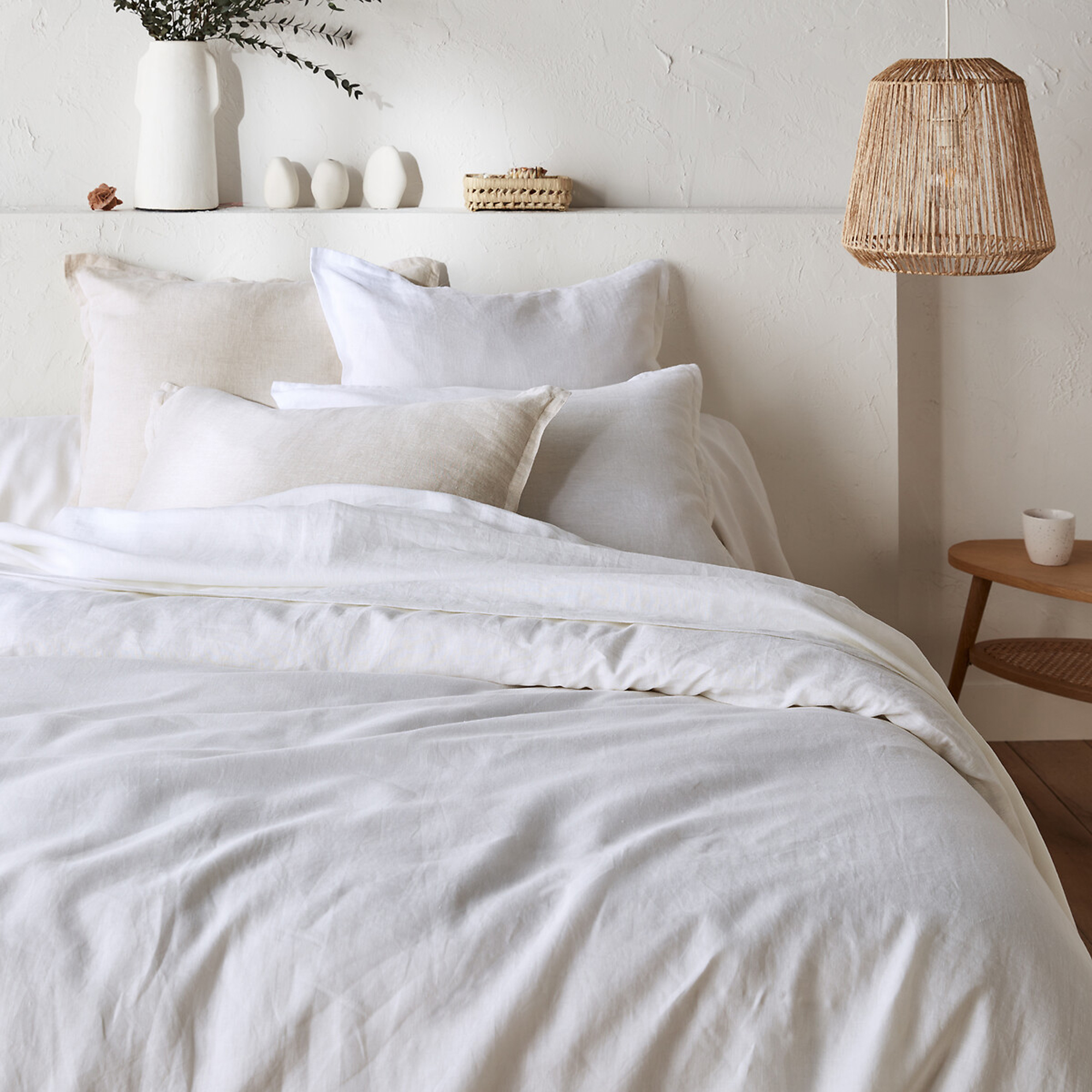
How to choose linen bedding
When choosing linen bedding, make sure to read the small print so you know what you're getting. There are two main types of linen fabrics used in bedding; pure or 100% linen, and linen blends, which use a combination of linen and cotton.
Pure 100% linen bedding will generally be the most expensive. It will have a slubbier texture and, usually, better breathability as the weave of the fabric is more open.
However, a cotton and linen blend can be a good option if you don't particularly like the look or feel of linen's rougher texture. When blended with cotton, the fabric becomes smoother and a little more like the traditional cotton bedding we may be more used to.
Personally, I prefer 100% linen, and that's what all of the options in this round-up are made from. But each of the retailers I've recommended above also offers a linen-blend or linen-mix bedding if that's more your thing.
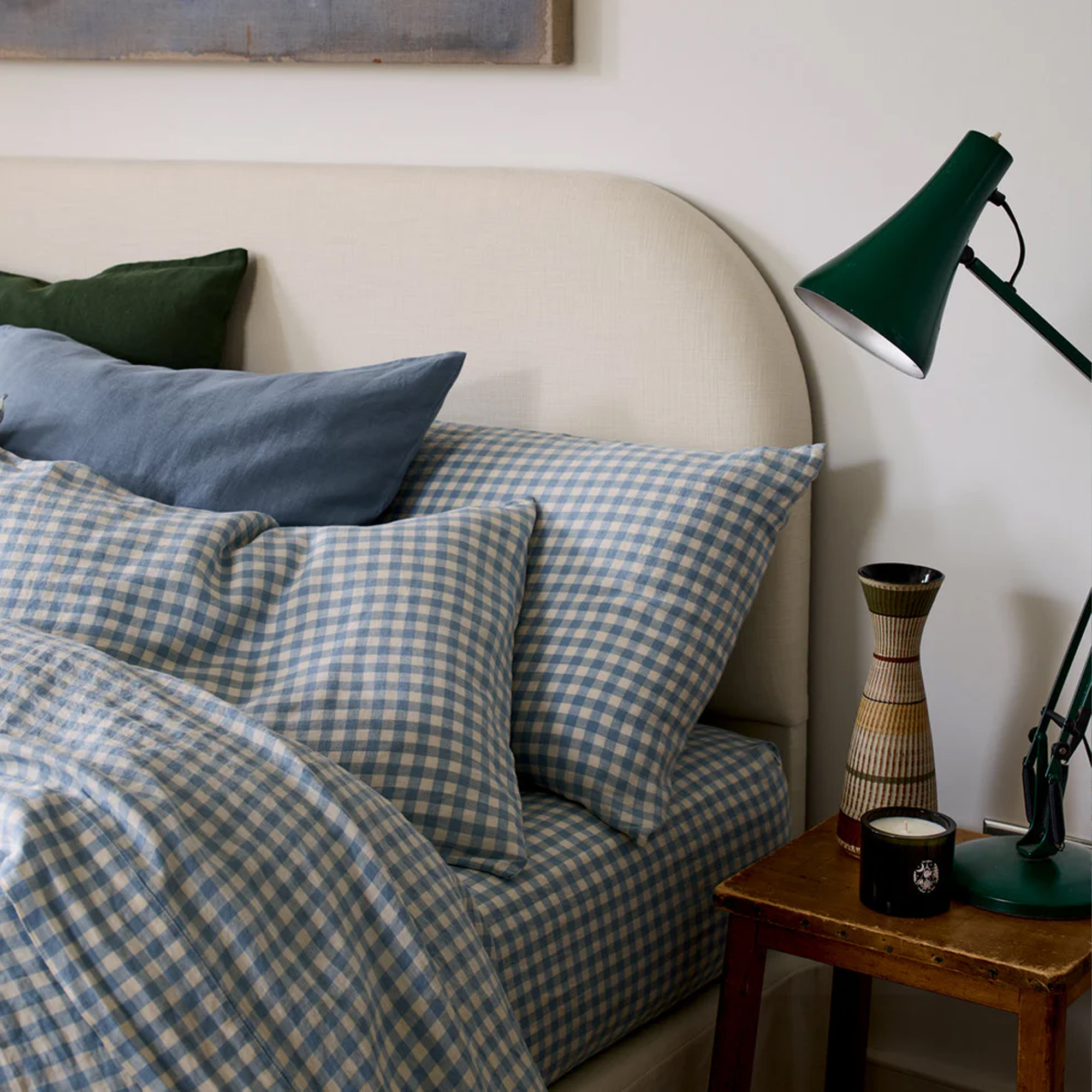
Next up, there are a few keywords you can look out for that will help you determine the linen's quality. As Georgia Metcalfe, founder and creative director of French Bedroom explains, 'as with cotton, linen is available in a range of grades, and this directly affects both the feel and the price.'
'Entry-level linen tends to use short-staple flax fibres, which can feel coarse and may not wear as well,' says Georgia. This is the type of linen that can tend to feel itchy against your skin. However, that shouldn't ever be an issue with good quality linen.
'At the premium end, you’ll find long-staple European flax that delivers a noticeably softer, smoother, and more durable fabric,' explains Georgia.
'Luxury linens are often also stonewashed for added softness and carry certifications such as OEKO-TEX or Masters of Linen, signalling both quality and responsible production.'
So if you can't feel a linen in person before you buy, look for wording such as long-staple, stonewashed, and OEKO-TEX® Standard 100 Certified.
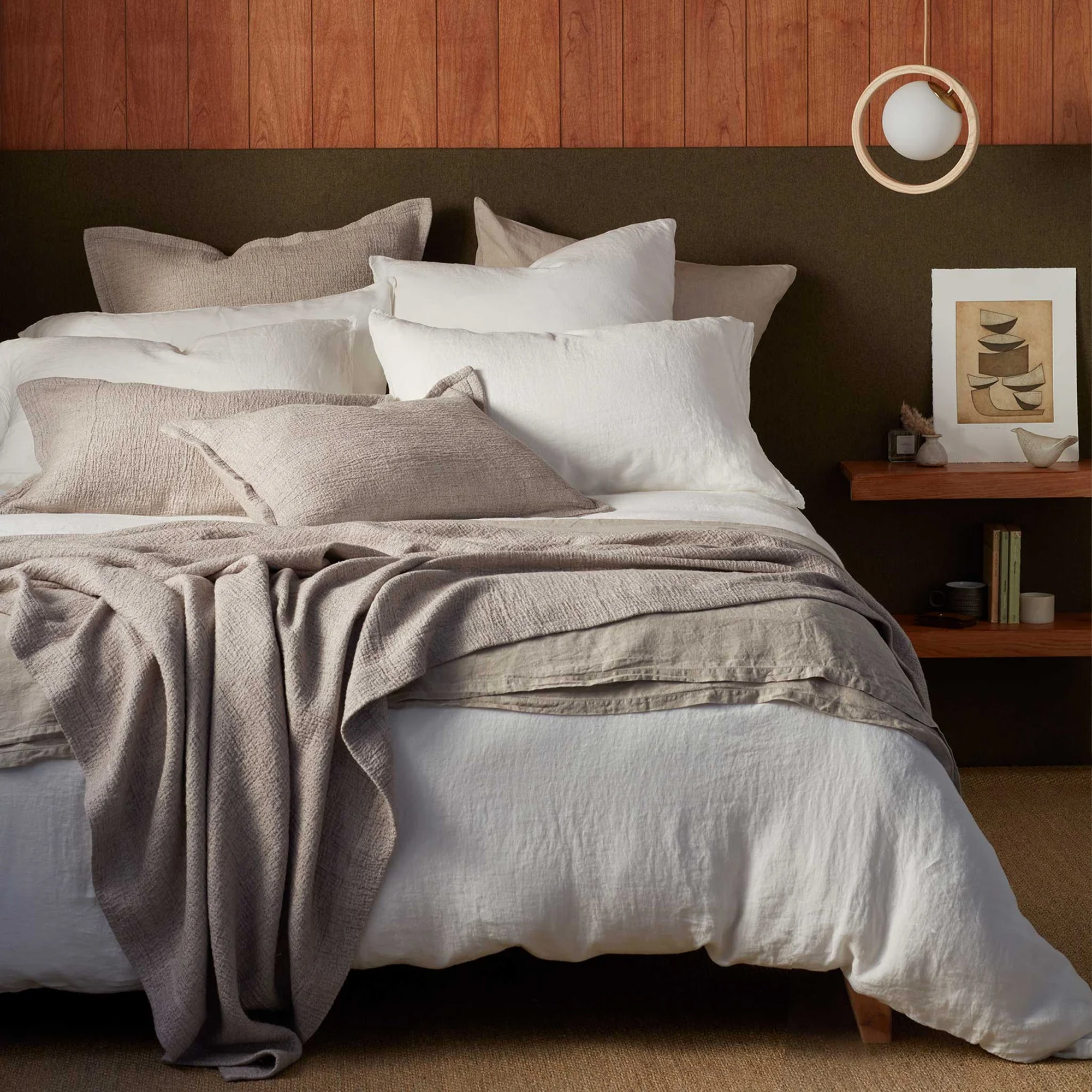
FAQS
Why is linen bedding so expensive?
Wondering why linen bedding is so expensive compared to cotton? As Chris Tattersall, sleep expert and managing director of Woolroom, explains, 'the higher cost associated with linen as a fabric is principally due to the slower production process and it being more difficult to harvest.'
'Flax plants, where linen comes from, are not easily grown, and it is often a time-consuming and laborious process that must take place in more specific conditions and climates. In contrast, cotton can grow almost anywhere. The flax plant must also be completely uprooted rather than just cut to maximise the fibre that can be harvested.'
A more laborious growing and harvesting process makes linen a more expensive fibre to produce and therefore, more expensive to buy.
Is linen bedding worth the investment?
So, considering its higher price point, is linen bedding worth it? 'Absolutely,' says Georgia Metcalfe of French Bedroom. 'Linen bedding is not only effortlessly elegant but also wonderfully practical. Naturally temperature-regulating, it keeps you cool in summer and warm in winter.'
'It’s also hypoallergenic, eco-friendly, and exceptionally durable, lasting years longer than cotton alternatives. In fact, medium to high quality linens wash better over time, while thinner fabrics and lower thread count cottons don’t hold their structure as well, or for as long.'
So if you're after breathability, durability, and effortless style, linen bedding is definitely worth the investment.
Sign up to our newsletter for style inspiration, real homes, project and garden advice and shopping know-how

Amy is Ideal Home’s Sleep Editor and the Ideal Home Certified Expert on Sleep. She's spent the last five years researching and writing about what makes for the best night’s sleep during the day and testing out sleep products to find the best-in-class by night. So far she’s clocked up over 10,000 hours of pillow, duvet, and mattress testing experience.
Our go-to for all things sleep-related, she’s slept on and under bestselling products from Simba, Emma, Hypnos, Tempur, Silentnight, Panda, and many many more.
As a hot sleeper, Amy is always on the lookout for the most breathable bedding, but she also leads a wider team of testers to ensure our product testing encompasses both hot sleepers, cold sleepers, front sleepers, back sleepers, side sleepers, and everything in-between.